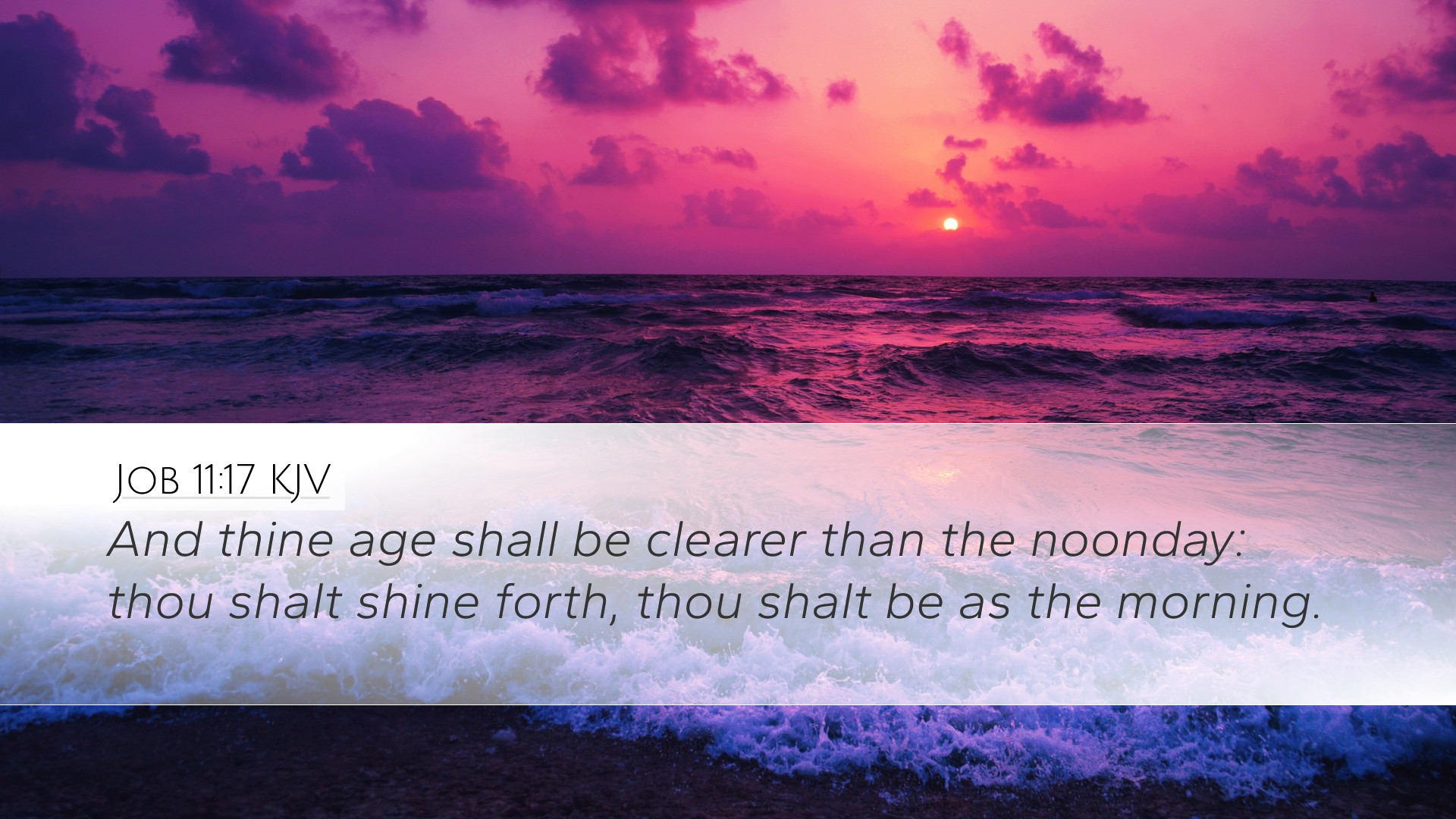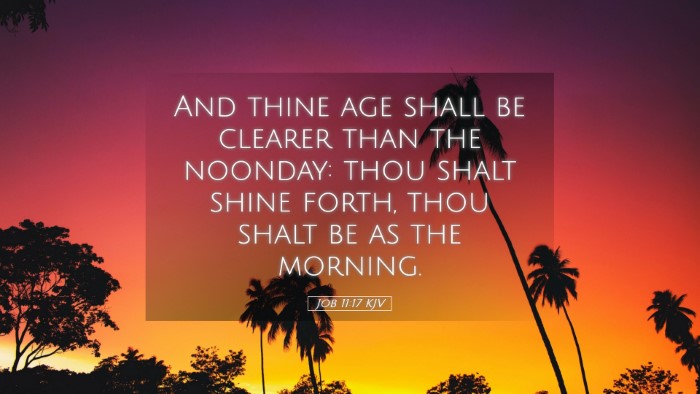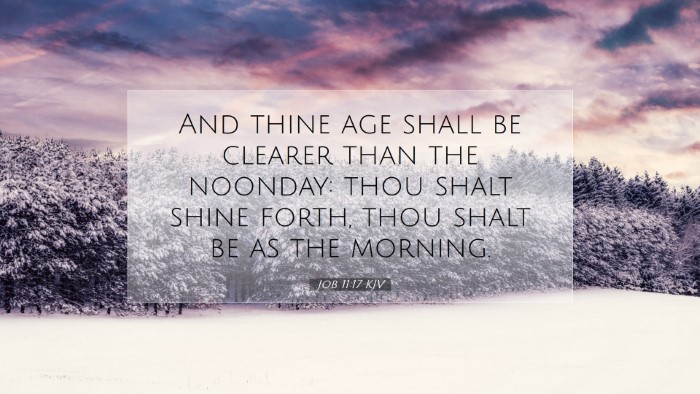Old Testament
Genesis Exodus Leviticus Numbers Deuteronomy Joshua Judges Ruth 1 Samuel 2 Samuel 1 Kings 2 Kings 1 Chronicles 2 Chronicles Ezra Nehemiah Esther Job Psalms Proverbs Ecclesiastes Song of Solomon Isaiah Jeremiah Lamentations Ezekiel Daniel Hosea Joel Amos Obadiah Jonah Micah Nahum Habakkuk Zephaniah Haggai Zechariah MalachiJob 11:17
Job 11:17 KJV
And thine age shall be clearer than the noonday: thou shalt shine forth, thou shalt be as the morning.
Job 11:17 Bible Commentary
Commentary on Job 11:17
Verse: "And your life would be brighter than noonday; its darkness would be like the morning." (Job 11:17 NASB)
Job 11:17 presents a profound promise amidst a discourse of deep sorrow and anguish. The statement encapsulates the essence of hope, restoration, and divine insight. Below, we explore insights from public domain commentaries to extract meaningful reflections for pastors, students, theologians, and scholars.
1. Contextual Analysis
Job 11:17 is part of the speech by Zophar, one of Job's friends, who emphasizes the need for Job to repent and return to God. Zophar's perception of God is limited to a retributive framework, suggesting that Job's troubles stem from guilt and unconfessed sin.
Matthew Henry emphasizes that this advice is both harsh and lacking in true understanding of God’s grace. He points out that Zophar’s confidence in Job’s repentance leading to a brighter future reflects the general human inclination to oversimplify divine justice.
2. Theological Insights
This verse, when dissected theologically, brings forth several critical understandings:
- The Nature of Divine Forgiveness: Albert Barnes highlights the transformative power of God's forgiveness. “Your life would be brighter than noonday” implies that reconciliation with God brings illumination, enabling believers to see life’s circumstances through a lens of hope and purpose.
- The Contrast of Darkness and Light: Adam Clarke discusses the symbolism of light and darkness. While darkness represents despair and turmoil, the promise of morning symbolizes renewal. Clarke suggests that transition from darkness to light is a core theme in biblical literature, reflective of God's redemptive work.
- Growth Through Suffering: Observing the broader text, suffering often paves the way for spiritual growth. Henry notes that trials are often the precursor to divine enlightenment. Thus, while Zophar's rhetoric may seem simplistic, it invites a deeper reflection on the purpose behind suffering.
3. Application for Life
The reflections gleaned from Job 11:17 serve as a guide for practical application, particularly in pastoral ministry and personal discipleship:
- Encouragement in Trials: Pastors are called to remind their congregations that surrounding darkness is often temporary. Job 11:17 can be a source of comfort that encourages individuals to seek God in their darkest hours, knowing that morning will come.
- The Role of Repentance: The need for repentance is central in this verse. It serves to prompt self-introspection, encouraging believers to continually assess their lives in light of God’s holiness.
- The Hope of Restoration: The proclamation that life can be brighter than noonday is a call to hope. Students of theology and scripture can find solace and motivation in communicating the message of restoration found throughout the Bible.
4. Conclusion
Job 11:17 underscores a crucial tenet of the faith: God's promise of light amidst darkness. The insights from commentators serve to deepen our understanding of this verse, reminding us that while we navigate through the complexities of life, we can hold onto the hope of divine illumination and restoration.
In summary, as we reflect upon Job 11:17, let us embrace the dual themes of repentance and hope; recognizing that our darkest moments can indeed lead to the brightest revelations of God's grace and mercy.


